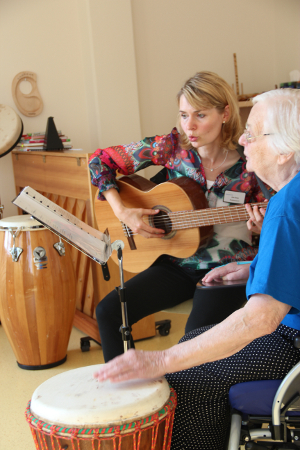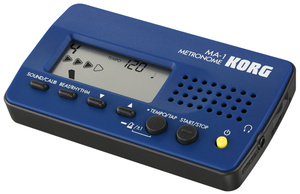Applications for speech, speech and voice training in neurological music therapy according to Thaut are described here.
Language training with music

With music therapy measures, linguistic brain functions, such as specifically stimulating language understanding or language production. The Melodic Intonation Therapy - MIT - is used to improve speech in aphasic patients (Broca type). With the help of Musical speech stimulation the use of song-like material can improve speech understanding in addition to language production. This is also in the Group music therapy for aphasia used.
Rhythmic speech training (Rhythmic Speech Cueing - RSC)

Rhythmic Speech Training RSC is an effective method for speech training for stutterers. In addition, it could also with different forms of dysarthria = slurred speech, e.g. at Parkinson's disease) or speech apraxia may be helpful. RSC speech training uses basic skills that exist in all people. A metronome (see equipment) sets the speaking pace. Now you practice rhythmically "in time". This speech training helps to improve comprehensibility or speaking fluency. Here here Practical examples from the Handbook for Neurologic Music Therapy.
Musical voice training
To improve voice quality, musical functional voice and breathing exercises are used, similar to voice training. By using wind instruments (such as melodica) you can specifically work on lip mobility and breathing function. Under Accessories can be found in the LiLaLiederheft. There are links for therapeutically optimized karaoke. Singing along is even possible if you have voice problems.